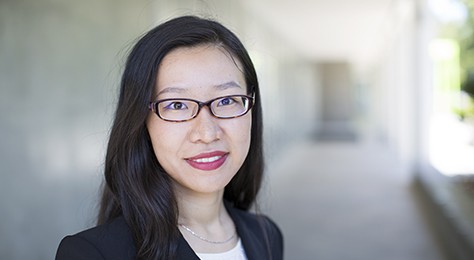CANADIAN IMMIGRATION UPDATES: Applicants to Master’s and Doctoral degrees are not affected by the recently announced cap on study permits. Read more

Meet UBC Sauder’s New Faculty - Yanwen Wang

At UBC Sauder, faculty members are more than just ‘professors.’ They conduct impactful research that is changing how society views the world while also inspiring students to pursue their academic passions and become the thoughtful, values-driven leaders the business world needs.
This year, UBC Sauder welcomed 14 new full-time lecturers, tenured and tenure-track faculty to the school. In the fourth of this series, we introduce you to Marketing and Behavioural Science Assistant Professor Yanwen Wang.
What brought you to UBC Sauder?
UBC Sauder is a top-ranked business school, and the Marketing and Behavioural Science division is ranked in the top 20 globally for its research productivity. I’m honored to be able to join UBC Sauder.
What are your areas of research and how did you get into this field?
I’m an empirical modeler. My research focuses on the intersection between marketing and public policy, and the regulatory implications of marketing actions in a variety of contexts including anti-smoking campaigns, political advertising, secondary market restrictions and retirement savings decisions. One of my motivations for pursuing a career in this field is that I believe marketing is a useful lens for understanding the larger world.
What inspires you to teach?
I believe a business school education is a transformational process that creates business leaders. Hence, when I teach, I aim to transform the way students think. I believe my role is to provide a robust knowledge platform from which students can develop critical thinking ability, apply solid analytical skills and create innovative approaches that will allow them to challenge the status-quo.
What’s the most interesting thing you’ve discovered through your research?
There are a couple! One of my papers showed that although cigarette taxes are the most effective technique to reduce overall smoking rates, there’s a significant downside because these taxes are currently applied at the per pack level rather than by nicotine levels. As a result, consumers may respond to increasing cigarette taxes by switching to higher nicotine products.
Another paper found that even the most faithful customers will make fewer subsequent purchases if they don’t qualify for a company’s reward program. This begs the question: can loyalty programs actually alienate a company’s most faithful customers?
What do you believe is the future of your industry?
I believe that the future of marketing is a combination of machine learning data patterns and humans making sense of machine learning results.
What are you most looking forward to in your new home of Vancouver?
I look forward to all the aspects of lifestyles that Vancouver can provide.